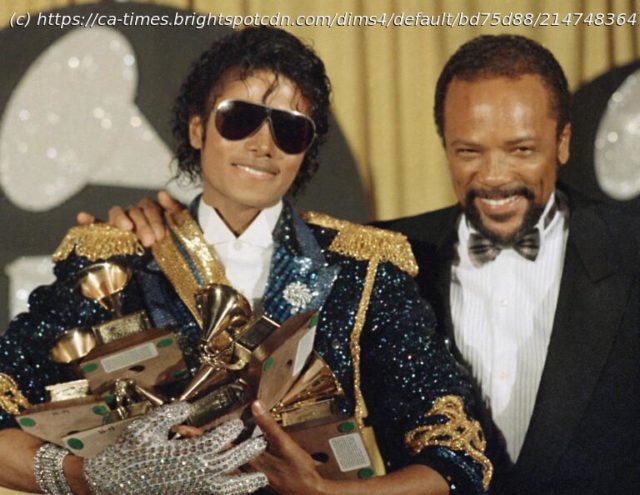The musician and producer known for his groundbreaking work with Michael Jackson and Frank Sinatra died Sunday at age 91. Here are 15 of his essential songs.
As a musician, a producer, a composer and an executive, Quincy Jones created hits. But in a career that stretched across three-quarters of a century, what may have been more important about this giant of American music — who died Sunday at age 91 — is that he created the conditions for hits. Jones was a crucial connector of talent and repertoire; he had an instinctive sense of where artists should go to find success; he built a multimedia empire with an eye toward empowering people for whom show business didn’t always make room. His magnum opus was Michael Jackson’s “Thriller,” widely agreed upon as the bestselling album of all time. But even that blockbuster merely scratches the surface of his cultural impact. Here, in the order they were released, are 15 of his essential recordings:
‘Soul Bossa Nova’ (1962)
If Mike Myers hadn’t created Austin Powers — whose series of films employs this instrumental ditty as a theme — somebody would’ve had to have come up with a similar character just to take advantage of the song’s limitless swag.
Lesley Gore, ‘It’s My Party’ (1963)
At age 16, Gore topped Billboard’s Hot 100 on her very first try: Her debut single, which Jones put together as part of his day job as a staff producer at Mercury Records, is a rollicking expression of teenage frustration, with drums and horns that feel about two clicks rawer than you’d expect no matter how many times you hear the song.
Frank Sinatra, ‘Fly Me to the Moon’ (1964)
Johnny Mathis, Nancy Wilson and Peggy Lee had already recorded Bart Howard’s romantic entreaty by the time Jones arranged a version for Sinatra on the latter’s “It Might As Well Be Swing” LP with Count Basie. But nobody made the song jump like Jones did — one reason Ol’ Blue Eyes kept working with him for the next two decades (including on Sinatra’s final solo studio album, 1984’s wonderfully schmaltzy “L.A. Is My Lady”).
‘The Streetbeater’ (1972)
TV never knew a funkier theme song than the one Jones composed for “Sanford & Son.”
Aretha Franklin, ‘Somewhere’ (1973)
Franklin made only a single studio LP with Jones: “Hey Now Hey (The Other Side of the Sky),” which they recorded in the wake of Franklin’s twin 1972 landmarks, “Young, Gifted and Black” and the live gospel album “Amazing Grace.






